| No. | Image | Name | Start year | End year | Note | Reference |
|---|
| 1 | 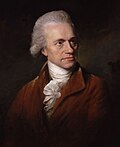 | William Herschel | 1821 | 1823 | | [2] [3] |
| 2 |  | Henry Thomas Colebrooke | 1823 | 1825 | | [2] [3] |
| 3(a) |  | Francis Baily | 1825 | 1827 | First term | [2] [3] |
| 4(a) |  | John Herschel | 1827 | 1829 | First term | [2] [3] |
| 5 |  | James South | 1829 | 1831 | | [2] [3] |
| 6 |  | John Brinkley | 1831 | 1833 | | [2] [3] |
| 3(b) |  | Francis Baily | 1833 | 1835 | Second term | [2] [3] |
| 7(a) |  | George Airy | 1835 | 1837 | First term | [2] [3] |
| 3(c) |  | Francis Baily | 1837 | 1839 | Third term | [2] [3] |
| 4(b) |  | John Herschel | 1839 | 1841 | Second term | [2] [3] |
| 8 |  | John Wrottesley | 1841 | 1843 | | [2] [3] |
| 3(d) |  | Francis Baily | 1843 | 1844 | Fourth term, died in office | [2] [3] [4] |
| 7(b) |  | George Airy | 1844 | 1845 | Second term, appointed by RAS Council to fill the vacancy left by Baily's death | [4] |
| 9 |  | William Henry Smyth | 1845 | 1847 | | [2] [3] |
| 4(c) |  | John Herschel | 1847 | 1849 | Third term | [2] [3] |
| 7(c) |  | George Airy | 1849 | 1851 | Third term | [2] [3] |
| 10(a) | 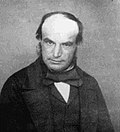 | John Couch Adams | 1851 | 1853 | First term | [2] [3] |
| 7(d) |  | George Airy | 1853 | 1855 | Fourth term | [2] [3] |
| 11 | | Manuel John Johnson | 1855 | 1857 | | [2] [3] |
| 12 | | George Bishop | 1857 | 1859 | | [2] [3] |
| 13 | | Reverend Robert Main | 1859 | 1861 | | [2] [3] |
| 14 |  | John Lee | 1861 | 1863 | | [2] [3] |
| 7(e) |  | George Airy | 1863 | 1864 | Fifth term, resigned after one year | [2] [3] |
| 15 |  | Warren De la Rue | 1864 | 1866 | | [2] [3] |
| 16 | 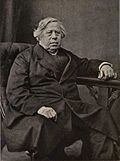 | Charles Pritchard | 1866 | 1868 | | [2] [3] |
| 17 | | Russell Henry Manners | 1868 | 1870 | | [2] [3] |
| 18 |  | William Lassell | 1870 | 1872 | | [2] [3] |
| 19 |  | Arthur Cayley | 1872 | 1874 | | [2] [3] |
| 10(b) |  | John Couch Adams | 1874 | 1876 | Second term. Last president to serve for more than 2 years in total. | [2] [3] |
| 20 |  | William Huggins | 1876 | 1878 | | [2] [3] |
| 21 |  | James Ludovic Lindsay | 1878 | 1880 | | [2] [3] |
| 22 |  | John Russell Hind | 1880 | 1882 | | [2] [3] |
| 23 | | Edward Stone | 1882 | 1884 | | [2] [3] |
| 24 | | Edwin Dunkin | 1884 | 1886 | | [2] [3] |
| 25(a) |  | James Whitbread Lee Glaisher | 1886 | 1888 | First term | [2] [3] |
| 26 |  | William Christie | 1888 | 1890 | | [2] [3] |
| 27 | | James Francis Tennant | 1890 | 1892 | | [2] [3] |
| 28(a) | | Edward Ball Knobel | 1892 | 1893 | First term | [2] [3] |
| 29 |  | William de Wiveleslie Abney | 1893 | 1895 | | [2] [3] |
| 30 |  | Andrew Ainslie Common | 1895 | 1897 | | [2] [3] |
| 31 |  | Robert Stawell Ball | 1897 | 1899 | | [2] [3] |
| 32 |  | George Darwin | 1899 | 1900 | | [2] [3] |
| 28(b) | | Edward Ball Knobel | 1900 | 1901 | Second term | [2] [3] |
| 25(b) |  | James Whitbread Lee Glaisher | 1901 | 1903 | Second term | [2] [3] |
| 33 | | Herbert Hall Turner | 1903 | 1905 | | [2] [3] |
| 34 | 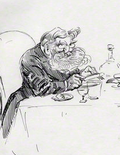 | William Maw | 1905 | 1907 | | [2] [3] |
| 35 | | Hugh Frank Newall | 1907 | 1909 | | [2] [3] |
| 36 | 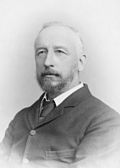 | David Gill | 1909 | 1911 | | [2] [3] |
| 37 | 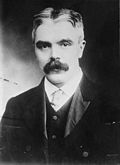 | Frank Watson Dyson | 1911 | 1913 | | [2] [3] |
| 38 | | Edmond Herbert Grove-Hills | 1913 | 1915 | | [2] [3] |
| 39 | | Ralph Allen Sampson | 1915 | 1917 | | [2] [3] |
| 40 |  | Percy Alexander MacMahon | 1917 | 1919 | | [2] [3] |
| 41 |  | Alfred Fowler | 1919 | 1921 | | [2] [3] |
| 42 | 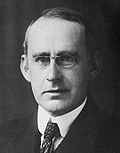 | Arthur Eddington | 1921 | 1923 | | [2] |
| 43 |  | John Louis Emil Dreyer | 1923 | 1925 | | [2] |
| 44 |  | James Jeans | 1925 | 1927 | | [2] |
| 45 | | Theodore Evelyn Reece Phillips | 1927 | 1929 | | [2] |
| 46 |  | Andrew Claude De Lacherois Crommelin | 1929 | 1931 | | [2] |
| 47 | | Harold Knox-Shaw | 1931 | 1933 | | [2] |
| 48 |  | Frederick John Marrian Stratton | 1933 | 1935 | | [2] |
| 49 |  | John Henry Reynolds | 1935 | 1937 | | [2] |
| 50 | | Harold Spencer Jones | 1937 | 1939 | | [2] |
| 51 | | Henry Crozier Keating Plummer | 1939 | 1941 | | [2] |
| 52 | 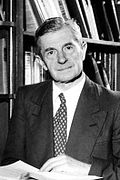 | Sydney Chapman | 1941 | 1943 | | [2] |
| 53 |  | Arthur Milne | 1943 | 1945 | | [2] |
| 54 | | Harry Hemley Plaskett | 1945 | 1947 | | [2] |
| 55 | | William Michael Herbert Greaves | 1947 | 1949 | | [2] |
| 56 | | William Marshall Smart | 1949 | 1951 | | [2] |
| 57 |  | Herbert Dingle | 1951 | 1953 | | [2] |
| 58 |  | John Jackson | 1953 | 1955 | | [2] |
| 59 | | Harold Jeffreys | 1955 | 1957 | | [2] |
| 60 | | William Herbert Steavenson | 1957 | 1959 | | [2] |
| 61 | | Roderick Oliver Redman | 1959 | 1961 | | [2] |
| 62 | | William McCrea | 1961 | 1963 | | [2] |
| 63 | | Richard van der Riet Woolley | 1963 | 1965 | | [2] |
| 64 | | Thomas George Cowling | 1965 | 1967 | | [2] |
| 65 | | Donald Sadler | 1967 | 1969 | | [2] [5] |
| 66 |  | Bernard Lovell | 1969 | 1971 | | [2] |
| 67 |  | Fred Hoyle | 1971 | 1973 | | [2] |
| 68 | | Donald Blackwell | 1973 | 1975 | | [2] |
| 69 |  | Francis Graham-Smith | 1975 | 1977 | | [2] |
| 70 | | Alan Cook | 1977 | 1979 | | [2] |
| 71 | | Michael Seaton | 1979 | 1981 | | [2] |
| 72 |  | Arnold Wolfendale | 1981 | 1983 | | [2] |
| 73 | | Raymond Hide | 1983 | 1985 | | [2] |
| 74 | 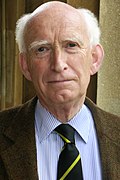 | Donald Lynden-Bell | 1985 | 1987 | | [2] |
| 75 | 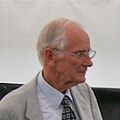 | Rod Davies | 1987 | 1989 | | [2] |
| 76 | | Roger John Tayler | 1989 | 1990 | Astronomer: stellar evolution, galaxy evolution, plasma physics.
Resigned his presidency a year early when he was diagnosed with myeloma. | [2] [6] |
| 77 | | Kenneth Pounds | 1990 | 1992 | Space scientist, X-ray astronomer | [2] |
| 78 |  | Martin Rees | 1992 | 1994 | Cosmologist, theoretical astrophysicist | [2] |
| 79 | | Carole Jordan | 1994 | 1996 | First female president
Solar physicist, ultraviolet astronomer | [2] |
| 80 |  | Malcolm Longair | 1996 | 1998 | High energy astronomer, cosmologist | [2] |
| 81 | | David A. Williams | 1998 | 2000 | Astrochemist | [2] |
| 82 | | Nigel Weiss | 2000 | 2002 | Theoretical astrophysicist | [2] |
| 83 |  | Jocelyn Bell Burnell | 2002 | 2004 | Radio astronomer | [2] |
| 84 |  | Kathryn Whaler | 2004 | 2006 | Earth geophysicist | [2] |
| 85 | | Michael Rowan-Robinson | 2006 | 2008 | Infrared astronomer | [2] |
| 86 |  | Andrew Fabian | 2008 | 2010 | X-ray astronomer | [2] |
| 87 |  | Roger Davies | 2010 | 2012 | Astronomer, physical cosmologist | [2] |
| 88 |  | David Southwood | 2012 | 2014 | Space scientist, magnetospheres | [2] [7] |
| 89 |  | Martin Barstow | 2014 | 2016 | Astronomer: white dwarfs, interstellar medium, ultraviolet astronomy | [2] [1] [8] [9] |
| 90 | 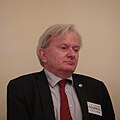 | John Zarnecki | 2016 | 2018 | Space scientist, spacecraft instrumentation | [10] [11] |
| 91 | | Mike Cruise | 2018 | 2020 | Astronomer, gravitational waves | [2] |
| 92 |  | Emma Bunce | 2020 | 2022 | Space scientist, planetary magnetospheres | [12] |
| 93 |  | Mike Edmunds | 2022 | 2024 | Astrophysicist Abundance of the chemical elements Cosmic dust | [13] |
| 94 |  | Mike Lockwood | 2024 | 2026 | | [14] |
|

























































